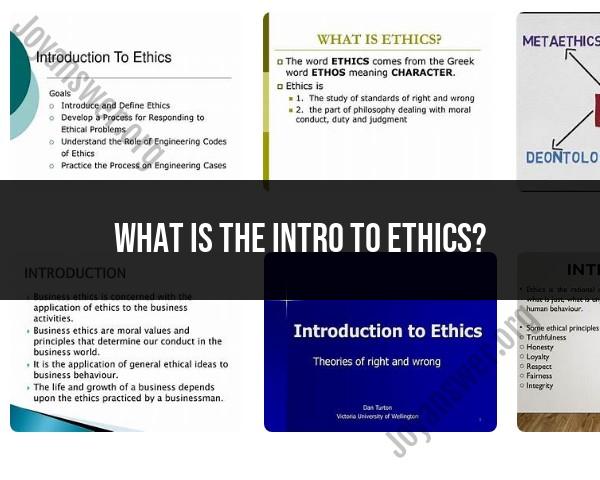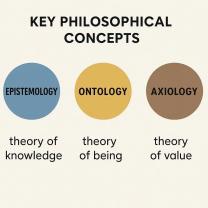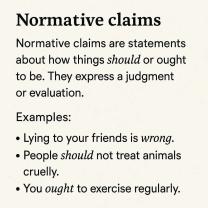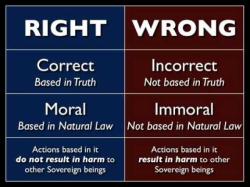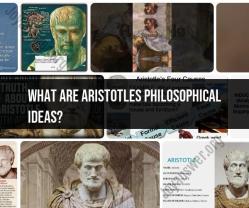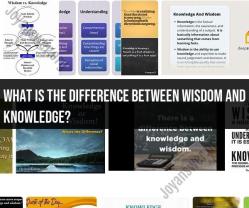What is the intro to ethics?
"Introduction to Ethics" is a course or academic program that provides a foundational exploration of ethical theories, principles, and concepts. Ethics is a branch of philosophy that involves the study of moral values, principles, and judgments that guide human behavior. An introductory course in ethics typically covers fundamental ideas and theories that help individuals understand and critically engage with ethical issues in various contexts, including personal, professional, and societal settings.
Here are some key elements that may be covered in an introductory ethics course:
Ethical Theories:
- Introduction to major ethical theories, such as consequentialism, deontology, virtue ethics, and ethical relativism.
- Understanding the principles and key concepts associated with each ethical theory.
Moral Reasoning:
- Developing skills in moral reasoning and critical thinking.
- Analyzing and evaluating ethical arguments and dilemmas.
Ethical Decision-Making:
- Exploring frameworks for ethical decision-making.
- Understanding the steps and considerations involved in making morally informed choices.
Applied Ethics:
- Examining ethical issues in specific contexts, such as business ethics, medical ethics, environmental ethics, and technology ethics.
- Analyzing case studies to understand how ethical principles are applied in real-world situations.
Metaethics:
- Introduction to metaethics, which involves the examination of the nature and meaning of ethical concepts.
- Exploring questions related to moral language, moral realism, and moral relativism.
Ethics and Society:
- Understanding the relationship between ethics and societal norms.
- Exploring how cultural, social, and historical factors influence ethical beliefs and practices.
Professional Ethics:
- Examining ethical considerations within specific professions (e.g., business, medicine, law).
- Discussing codes of ethics and professional responsibilities.
Ethics and Technology:
- Exploring ethical issues related to the use of technology, artificial intelligence, and digital platforms.
- Considering the impact of technological advancements on privacy, security, and social justice.
Ethics and Diversity:
- Discussing the role of ethics in addressing issues of diversity, equity, and inclusion.
- Exploring ethical considerations in relation to cultural differences and social justice.
An introduction to ethics aims to provide students with a broad understanding of ethical theories, principles, and their application in various contexts. It encourages thoughtful reflection on moral issues and equips individuals with the tools to engage in ethical reasoning and decision-making in both personal and professional aspects of life. This foundational knowledge can serve as a basis for more advanced studies in ethics and related fields.
Introduction to Ethics: Exploring Moral Dilemmas and Building Ethical Frameworks
1. Course Coverage:
An introduction to ethics course typically explores a broad range of topics fundamental to ethical thinking. These may include:
- Nature of Ethics: Defining ethics, its purpose, and its role in human life.
- Moral Theories: Examining different philosophical perspectives on morality, such as utilitarianism, deontology, virtue ethics, and relativism.
- Moral Dilemmas: Analyzing real-world scenarios that present conflicting ethical considerations and require justification for decisions.
- Ethical Reasoning: Developing critical thinking skills to identify and analyze ethical issues, consider various viewpoints, and construct sound arguments for moral positions.
- Ethical Principles: Exploring core ethical principles such as justice, fairness, rights, responsibility, and autonomy.
- Moral Responsibility: Understanding the concept of moral responsibility and its implications for individual and collective actions.
- Contemporary Ethical Issues: Discussing current ethical challenges in various fields such as artificial intelligence, bioethics, environmentalism, and social justice.
2. Setting the Foundation for Ethical Thinking:
An introduction to ethics course aims to lay the groundwork for a lifelong journey of ethical exploration and development. It offers the following benefits:
- Develops Moral Awareness: Enhances sensitivity to ethical issues, fostering a critical eye towards moral dilemmas encountered in everyday life.
- Promotes Critical Thinking: Cultivates skills in analyzing complex moral problems, evaluating different perspectives, and constructing reasoned arguments.
- Provides Frameworks for Ethical Decision-Making: Introduces and explores various ethical frameworks and principles that can guide individuals in making sound moral decisions.
- Encourages Self-Reflection: Fosters self-awareness and critical reflection on personal values, biases, and ethical beliefs.
- Enhances Moral Reasoning: Equips individuals with the tools to articulate their ethical positions clearly and confidently, engage in constructive dialogue, and consider diverse perspectives.
3. Key Concepts and Theories:
An introduction to ethics course typically introduces and explores several key concepts and theories, including:
- Moral Judgments: Understanding the nature of moral judgments, their formation, and the factors influencing them.
- Values and Norms: Exploring the role of values and social norms in shaping ethical behavior.
- Moral Relativism and Objectivity: Discussing the debate between moral relativism and the possibility of objective moral truths.
- Utilitarianism: Focusing on maximizing overall happiness and welfare.
- Deontology: Emphasizing the importance of respecting moral rules and duties.
- Virtue Ethics: Exploring the development of virtuous character traits for ethical conduct.
- Justice and Fairness: Analyzing different conceptions of justice and their application in various contexts.
- Rights and Responsibilities: Understanding the relationship between individual rights and responsibilities in ethical decision-making.
By delving into these concepts and theories, an introduction to ethics course provides a valuable foundation for individuals to engage in critical reflection, develop sound moral reasoning skills, and navigate the complex ethical landscape of life. It empowers individuals to make informed and responsible decisions that contribute to a just and ethical society.
